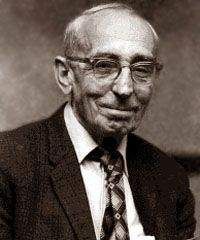Пользователь - o 3b3e7475144cf77c
anything; she wanted to be fair, and she knew that Lanny had been fair—he had told her about
his eccentricities before he asked for her, and she had taken him on his own terms. It was
her hard luck that she hadn't realized what it would mean to have a husband dyed a shade
of Pink so deep thatthe bourgeois mind couldn't tell it from scarlet.
IV
The new Reichstag was summoned promptly. It met in Potsdam, home of the old glories of
Prussia, and Hitler applied his genius to the invention of ceremonies to express his patriotic
intentions and to arouse the hopes of the German Volk. All the land burst out with flags—the
new Hakenkreuz flag, which the Cabinet had decreed should replace that of the dying
Republic. Once more the beacons blazed on the hilltops, and there were torchlight parades of
all the Nazi organizations, and of students and children. Hitler laid a wreath on the tomb of his
dead comrades. Hindenburg opened the Reichstag, and the ceremonies were broadcast to all the
schools. The "Bohemian corporal" delivered one of his inspired addresses, in which he told his
former Field Marshal that by making him Chancellor he had "consummated the marriage
between the symbols of ancient glory and of young might."
Hitler wanted two things: to get the mastery of Germany, and to be let alone by the outside
world while he was doing it. When the Reichstag began its regular sessions, in the Kroll Opera
House in Berlin, he delivered a carefully prepared address in which he declared that it was the
Communists who had fired the Reichstag building, and that their treason was to be "blotted
out with barbaric ruthlessness." He told the rich that "capital serves business, and business the
people"; that there was to be "strongest support of private initiative and the recognition of
property." The rich could have asked no more. To the German peasants he promised "rescue," and
to the army of the unemployed "restoration to the productive process."
To enable him to carry out this program he asked for a grant of power in a trickily worded
measure which he called a "law for the lifting of want from the people and empire." The
purpose of the law was to permit the present Cabinet, and the present Cabinet alone, to
make laws and spend money without consulting the Reichstag; but it didn't say that; it
merely repealed by number those articles in the Constitution which reserved these crucial
powers to the Reichstag. The new grant was to come to an end in four years, and sooner if any
other Cabinet came into office. Nobody but Adolf was ever to be the Führer of Germany!
This device was in accord with the new Chancellor's "legality complex"; he would get the
tools of power into his hands by what the great mass of the people would accept as due process of
law. His speech in support of the measure was shrewdly contrived to meet the prejudices of all
the different parties, except the Communists, who had been barred from their seats, and the
Socialists, who were soon to share that fate. A mob of armed Nazis stood outside the building,
shouting their demands that the act be passed, and it carried by a vote of 441 to 94, the
dissenters being Socialists. Then Goring, President of the Reichstag, declared the session
adjourned, and so a great people lost their liberties while rejoicing over gaining them.
V
During this period there were excitements in the United States as well as in Germany. Crises
and failures became epidemic; in one state after another it was necessary for the governor to
decree a closing of all the banks. Robbie Budd wrote that it was because the people of the
country couldn't contemplate the prospect of having their affairs managed by a Democrat.
When the new President was inaugurated—which fell upon the day before the Hitler elections
— his first action was to order the closing of all the banks in the United States—which to
Robbie was about the same thing as the ending of the world. His letter on the subject was so
pessimistic that his son was moved to send him a cablegram: "Cheer up you will still eat."
Really it wasn't as bad as everybody had expected. People took it as a joke; the richest man in
the country might happen to have only a few dimes in his pocket, and that was all he had,
and his friends thought it was funny, and he had to laugh, too. But everybody trusted him, and
took his checks, so he could have whatever he wanted, the same as before. Robbie didn't miss a
meal, nor did any other Budd. Meanwhile they listened to a magnificent radio voice telling
them with calm confidence that the new government was going to act, and act quickly, and that
all the problems of the country were going to be solved. The New Deal was getting under way.
The first step was to join Britain and the other nations off the gold standard. To Robbie it
meant inflation, and that his country was going to see what Germany had seen. The next thing
was to sort out the banks, and decide which were sound and in position to open with
government backing. The effect of that was to move Wall Street to Washington; the
government became the center of power, and the bankers came hurrying with their lawyers
and their brief-cases. A harum-scarum sort of affair, in which all sorts of blunders were made;
America was going to be a land of absurdities for many years, and the Robbie Budds would
have endless opportunities to ridicule and denounce. But business would begin to pick up and
people would begin to eat again—and not just the Budds.
Lanny didn't have any trouble, for the French banks weren't closed, and he had money to
spare for his refugees. If Irma's income stayed in hock they could go back to Bienvenu—the
cyclone cellar, she called it. She had never had to earn any money in her life, so it was easy for
her to take her husband's debonair attitude to it. If she lost hers, everybody else would lose
theirs, and you wouldn't have any sense of inferiority. Really, it was rather exciting, and the
younger generation took it as a sporting proposition. Irma would swing between that attitude
and her dream of an august and distinguished salon; when Lanny pointed out to her the
inconsistency of the two attitudes she was content to laugh.
VI
Rick came over to spend a few days with them; he was no longer so poor that he had to worry
about a trip to Paris, and it was his business to meet all sorts of people and watch what was
going on. A lame ex-aviator who would some day become a baronet, and who meanwhile had
made a hit as a playwright, was a romantic figure, even though he was extreme in his talk. The
ladies were pleased with him, and Irma discovered that she had what she might call a home-
made lion; she would tell the smartest people how Lanny had been Rick's boyhood chum, had
taken him to conferences all over Europe and helped to plan and even revise his plays; also
how she, Irma, had helped to finance The Dress-Suit Bribe, and was not merely getting her
money back but a considerable profit. It was the first investment that had been her very own,
and she could be excused for being proud of it, and for boasting about it to her mother and her
several uncles.
Irma decided more and more that she liked the English attitude to life. Englishmen felt
intensely, as you soon found out, but they were content to state their position quietly, and even
to understate it; they didn't raise their voices like so many Americans, or gesticulate like the
French, or bluster like the Germans. They had been in the business of governing for a long
time, and rather took it for granted; but at the same time they were willing to consider the
other fellow's point of view, and to work out some sort of compromise. Especially did that seem
to be the case with continental affairs, where they were trying so hard to mediate between the
French and the Germans. Denis de Bruyne said: "Vraiment, how generous they can be when
they are disposing of French interests!"
The Conference on Arms Limitation was still in session at Geneva, still wrangling, exposing
the unwillingness of any nation to trust any other, or to concede what might be to a rival
nation's advantage. Rick, the Socialist, said: "There isn't enough trade to go round, and they
can't agree how to divide it." Jesse Blackless, the Communist, said: "They are castaways on a
raft, and the food is giving out; they know that somebody has to be eaten, and who will
consent to be the first?"
There was a lot of private conferring between the British and the French, and British officials
were continually coming and going in Paris. Rick brought several of them to the palace for
tea and for dancing, and this was the sort of thing for which Irma had wanted the palace; she
felt that she was getting her money's worth—though of course she didn't use any such crude
phrase. Among those who came was that Lord Wickthorpe whom she had met in Geneva last
year. He had a post of some responsibility, and talked among insiders, as he counted Rick and
the Budds. Irma listened attentively, because, as a hostess, she had to say something and
wanted it to be right. Afterward she talked with Lanny, getting him to explain what she hadn't
understood. Incidentally she remarked: "I wish you could take a balanced view of things, the
way Wickthorpe does."
"Darling," he answered, "Wickthorpe is a member of the British aristocracy, and is here to
fight for the Empire. He's got pretty much of everything he wants, so naturally he can take
things easy."
"Haven't you got what you want, Lanny?"
"Not by a darn sight! I want a better life for masses of people who aren't in the British
Empire, and for many in the Empire whom Wickthorpe leaves out of his calculations."
"But, Lanny, you heard him say: 'We're all Socialists now.'"
"I know, dear; it's a formula. But they write their definition of the word, and it means that
Wickthorpe will do the governing, and decide what the workers are to get. The slum-dwellers
in the East End will go on paying tribute to the landlords, and the ryots in India and the
niggers in South Africa will be sweated to make luxury for British bondholders."
"Oh, dear!" exclaimed the would-be salonnière. "Who will want to come to see us if you talk
like that?"
VII
Lanny was interested in the point of view of these official persons, and sat in the splendid
library of his wife's rented home and listened to Rick discussing the Nazi movement with
Wickthorpe and his secretary, Reggie Catledge, who was also his cousin. It was a point of view
in no way novel to Lanny, his father having explained it when he was a very small boy. The
governing classes of Britain made it a fixed policy never to permit one nation to become
strong enough to dominate the Continent; regardless of which nation it might be, they would
set themselves the task of raising some rival as a counterweight.
Wickthorpe disliked the Nazis and what they were doing, but he didn't rave at them; he just
said they were a set of bounders. He took it for granted that their fantastic promises had been
made as a means of getting power. "Just politics," he said, and refused to be disturbed by the
possibility that the bounders might mean what they said. The two Englishmen listened with
interest to what Lanny had to tell about his meeting with Hitler, and asked him some
questions, but at the end they were of the same opinion still.
"We've had so many wild men in our public life," said his lordship. "You and I are too young
to remember how old John Burns used to rave in his speeches at Trafalgar Square, but my
parents got up slumming parties to go and listen. Long afterward you could meet the old boy
in the New Reform Club and hear him talk about it—in fact you could hardly get him to talk
about anything else."
"He was a very strict teetotaler, but his face was as red as a turkey- cock's wattles," added
Catledge.
"Hitler doesn't drink, either," said Lanny; but the others didn't appear to attach any
importance to that.
They went on to point out to Rick that the French imperialists were arrogant, and their
diplomats had made a lot of trouble in Syria, Iraq, and other places. French bankers had a
great store of gold, and made use of it in ways inconvenient to their rivals. Wickthorpe didn't
say that Hitler would serve to keep the French occupied, but his arguments made plain the
general idea that you couldn't entrust any one set of foreigners with too much power. It was
even possible to guess that he wasn't too heartbroken over what had happened in Wall Street
during the past four years; because a large part of Britain's prosperity depended upon her
service as clearinghouse for international transactions, and it had been highly embarrassing to
have the dollar prove more stable than the pound.
Wickthorpe and his cousin had it comfortably figured out what to be Hitler's role in world
affairs. Assuming that he was able to continue in power, he was going to fight Russia. He was
the logical one to do this, because of his geographical position; for Britain this factor made it
almost impossible. Lanny wanted to ask: "Why does anybody have to fight Russia?"—but he was
afraid that would be an improper question.
Here sat this tall young lord, smooth-skinned, pink-cheeked, with his fair hair and little toy
mustache; perfectly groomed, perfectly at ease; one couldn't say perfectly educated, for there
were many important things about which he knew nothing—science, for example, and the
economics of reality as opposed to those of classical theory. He knew ancient Greek and
Roman civilization, and Hebrew theology made over by the Church of England; he had recent
world affairs at his fingertips. He possessed perfect poise, charm of manner, and skill in keeping to
himself those thoughts which particular persons had no right to share. He was sure that he
was a gentleman and a Christian, yet he took it for granted that it was his duty to labor and
plan to bring about one of the most cruel and bloody of wars.
"You know, you might do quite a spot of trade with the Soviet Union," suggested Lanny,
mildly. "They have the raw materials and you have the machines."




